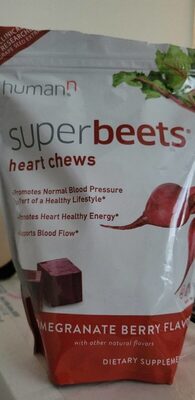
Barcode: 813188020780
Superbeets
HALAL
📝 Reason: This analysis used ingredient-specific Fiqh guidelines and scholarly references. None of the named ingredients are proven Haram; however ‘natural flavors’ and ‘glycerin’ are classified as Doubtful due to unknown origin which, per Islamic jurisprudence and IFANCA, must be clarified before product can be fully Halal (Quran 5:3). In line with the provided strict rules, if any ingredient is Doubtful, the product is Doubtful (Halal_Result=2). References: IFANCA, foodchemadditives.com, halalconsultant.com.
🏷️ Category: N, /, A
📄 Certificates: N, /, A, Vegetarisch, Vegan
Ingredients:
Details
Understanding the Halal Status of Superbeets
Superbeets has become a popular supplement for many health-conscious individuals. However, for Muslim consumers, understanding its Halal status is critical. In this article, we will explore Superbeets’ ingredients and their Halal compliance, offering insights into its suitability for those adhering to Islamic dietary laws.
Overview of Superbeets Ingredients
Superbeets contains a blend of various ingredients, namely:
- Tapioca syrup
- Raw cane sugar
- Rice bran
- Natural flavors
- Sunflower lecithin
- Sunflower oil
- Malic acid
- Glycerin
- Citric acid
- Rebaudioside A
Ingredient Analysis
Below, we break down each ingredient and its Halal status:
Tapioca Syrup
Derived from the cassava plant, tapioca syrup stands as a safe choice as it holds no animal or suspicious origin. Thus, it is classified as Halal.
Raw Cane Sugar
Raw cane sugar is a plant-based sugar, generally Halal. However, it is worth noting that its Halal status could change if processed with bone char; fortunately, this detail is unspecified here, suggesting a safer stance.
Rice Bran
Produced as a byproduct of rice milling, rice bran is entirely plant-based and falls under the Halal category.
Natural Flavors
Natural flavors present a more complex situation. While they can be derived from plant, animal, or chemical sources, the lack of explanation makes their status doubtful according to Islamic jurisprudence. Without clear information on origin, this ingredient poses a potential risk.
Sunflower Lecithin
Sunflower lecithin is derived from sunflower seeds, ensuring no animal or haram source, which designates it as Halal.
Sunflower Oil
This is a common vegetable oil from sunflower seeds and is confirmed Halal.
Malic Acid
Naturally found in fruits, commercial malic acid is synthetically produced and is Halal.
Glycerin
The status of glycerin remains uncertain as it can derive from either plant (Halal) or animal (Doubtful) sources. The ambiguities of its source render the ingredient questionable for strict Halal adherence.
Citric Acid
This ingredient is typically produced through fermentation of molasses or corn and is Halal.
Rebaudioside A
A sweetener derived from stevia leaves, rebaudioside A is plant-based, thus Halal.
Halal Status Conclusion
In conclusion, the Halal status of Superbeets is considered haltingly compliant with Islamic dietary laws. While many ingredients like tapioca syrup, raw cane sugar, rice bran, and others are verified Halal, the presence of natural flavors and glycerin introduces doubt. Islamic jurisprudence, as referenced in Quran 5:3, requires clarity regarding any ingredient marked as doubtful before consumption. This prompts a cautious stance when considering Superbeets. In line with recommendations provided by trusted sources like IFANCA, consumers must ensure that any ingredients classified as doubtful are adequately verified for authenticity and Halal compliance.
Why Choose Halal?
For Muslim consumers, choosing Halal products like Superbeets is essential for spiritual and physical well-being. It not only aligns with their dietary restrictions but also promotes trust and satisfaction in their choices. As such, always seeking transparent ingredient sourcing and certifications will guide you toward better decisions for health and faith.
